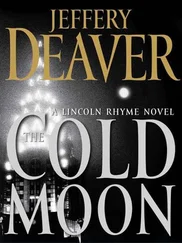He’d been on the verge of retiring when he was asked to join Operation Apiary. They needed men of a certain age, and he fit the bill. Once his role had been explained, how could he refuse? The benefits were obvious—and they paid him, to boot.
He got dressed, washed his face and combed his hair before going downstairs to have breakfast. He found a seat at a table next to one occupied by a pretty young woman who was by herself. She glanced at him, then returned to her muesli and yoghurt. That was the way the world normally worked. What sensible young woman would be interested in an old guy like him?
HOUSE OF A THOUSAND EYES
BY KATIA LIEF
Berlin, August 1961
I
Conrad slipped his rifle off his shoulder and took aim the moment he heard the thud. Across the road from where he guarded the border, a woman had stumbled rather dramatically. He blinked away perspiration dripping into his eyes from beneath his helmet and saw that the woman appeared to be in her thirties. She was loaded down with shopping bags, and something seemed to have fallen from one of them. A knot of garlic shed its papery skin as it bounced along the cracked pavement, settling just short of the snake of barbed wire separating east from west.
The slope of the woman’s cheekbones stirred something in Conrad, and for a moment he imagined touching her skin, its softness, even its taste. He thought fleetingly of Emilie. How long since he’d seen her? Swallowing the aching regret of her loss, he consulted his watch. It was nearly quitting time, and he was getting hungry. He reshouldered his rifle. He was about to fetch the garlic and toss it back to her when Hans, a fellow guard, beat him to it.
The woman was just out of sight when the explosion ripped Hans from the ground. Conrad rushed to his side along with Axel, his oldest friend and also a guard. As the smoke cleared, it was obvious that Hans was dead. The back of his head was crushed, threads of blood spinning lacework on the arid ground. His blue eyes, frozen, stared at nothing.
A siren wailed into the cacophony of panicked voices. Fellow East Berliners watched the scene through the dusty windows of apartments whose view had been radically transformed from open street to barbed wire. Conrad scanned the length of the street for any trace of the woman. Somehow, she had vanished into the havoc.
The next day, vultures appeared. The first three reporters came on foot, with notebooks, and the fourth on a rusty blue bicycle with a camera strapped across his back. Conrad refused an inner pull of jealousy; he’d had a bicycle as a child but it was stolen by the son of a neighbor who had been a Nazi. Conrad’s parents hadn’t dared complain. Axel would have remembered the bike, as he himself had borrowed it on occasion when they were boys. The friends glanced at each other now and in silent agreement refused to show any sort of response to the predators on the other side of the border. Hans had died a martyr for socialism, and if they couldn’t figure that out themselves, it was their loss.
“Officer!” The reporter slid off the bike and uncapped his camera. “Give us a wave.”
Conrad walked the border without changing his gait or even looking at the young man, who appeared to be twenty-one or -two, not much older than himself. He had to realize there was no way Conrad could reply. If he did, his commander would give him a severe talking-to; but worse, his own conscience would destroy him.
They hurled their questions like stones.
“How did it feel seeing your comrade die?”
“Has the bomber been identified?”
“Why did she do it? In your opinion. Why?”
“What will happen to her now?”
And then a ripple of laughter passed among the Westies. Journalists loved interpreting the German Democratic Republic for the benefit of the rest of the world, though what they came up with was predictable, generally something about Soviet imperialism, hypocrisy, tyranny.
Conrad ignored them. He had been raised well, and was proud of his work guarding the border. The two halves of Germany were too philosophically opposed to coexist. For the GDR to thrive, the capitalists needed to be kept out. As for the question of East Berliners being kept in, his father, a schoolteacher of some local renown, had explained that the resources of a new nation were vulnerable, and it was intolerable to continue allowing people to live in the east and work in the west, reaping the benefits of socialism while enriching themselves on filthy capitalism. “The soullessness of greed,” his father had called this kind of dual citizenship in a broken Germany. Still, Conrad was as surprised as any when the coils of wire appeared overnight, the root of a wall that enforced new rules of nonemigration. Within days, though, he was used to the idea and signed on as a guard while a permanent wall was gradually constructed.
“Give us something,” a reporter shouted. “Anything. A smile.”
Conrad marched steadily along his route. It wasn’t his problem if they’d missed the garlic bomb yesterday, if today their cameras were hungry for some sustenance. It wouldn’t come from him.
When finally his relief appeared, he handed over his rifle, and saluted. He noted with some disappointment that Axel, with whom he often shared an after-work beer, was still on duty. Conrad started for home.
“I saw you admiring the reporter’s bike.” Herr Muller, an older man his sister, Gabi, had briefly dated, pulled to a stop on his own gleaming black bicycle. He patted the handlebars. “Want to take her for a spin?”
“It’s a beauty. Where did you get it?”
“Bought it from a colleague last year.” Conrad tried and failed to recall what it was that Herr Muller did for a living. ”I’m thinking of getting rid of it. It takes up too much room in my apartment, and I never ride it.”
“You’re riding it now.”
“Thought if I took her out, it would help me decide.”
“And has it?”
Herr Muller shrugged, and suddenly Conrad remembered why his sister had broken up with him. It wasn’t his relative age, but his inability to settle on anything, anything at all.
“Go on, try her out, I don’t mind.”
Conrad took her around the block, twice, waving to Herr Muller each time he passed. He enjoyed the sensation of gliding. It was exhilarating. He decided he wanted the bike.
“I’ll buy it from you,” he told Muller, thinking he could free the man from his indecisiveness by putting it bluntly. “Name your price.”
When Muller smiled, a web of deep lines radiated across his temples. He was even older than Conrad had thought. His parents felt his sister had made a good choice marrying a man closer to her own age. They had two children now, and Lutz worked faithfully at the butcher shop where his own father had spent his life. He was your typical good man, or as his sister had put it, “a decent catch.” But Conrad had his suspicions after hearing from a friend who spotted his brother-in-law on Normanstrasse, in Lichtenberg, walking in the direction of Stasi headquarters. It was one thing to work openly for the GDR like Conrad, in uniform, so everyone knew who you were and what you stood for. It was quite another to work secretly as an Inoffizielle Mitarbeiter, informing on your friends and family. It was impossible to know who was an IM and who wasn’t. You had to watch your ground at all times, not that Conrad had anything to worry about. Even so, it was well known that when a Berliner was seen in Lichtenberg, chances were he was paying a visit to the House of a Thousand Eyes.
“ Name your price. ” Muller laughed. “You talk like a true Westy.”
“I only meant that—”
“Relax, son. Can’t you take a joke? I’ll tell you what: keep her until tomorrow and we’ll decide on a price. Same time and place. Who knows? Maybe I’ll even give her to you for nothing.”
Читать дальше












